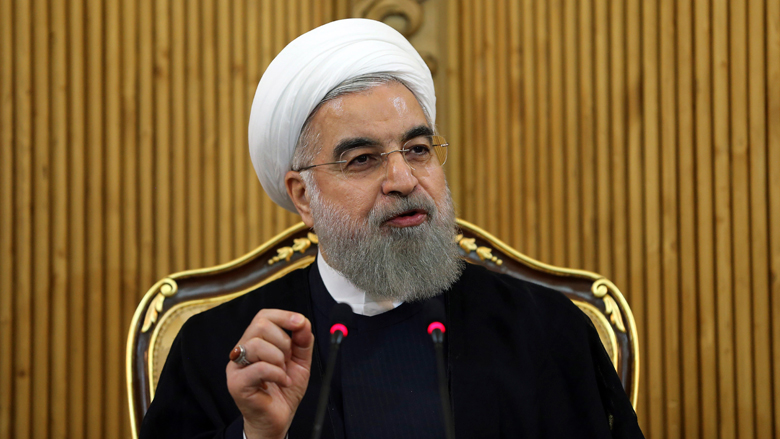Former US ambassador: ‘Iran simply is not an acceptable partner in the war against terror’
By CNS News | September 22, 2016, 6:13 EDT
 Iranian President Hassan Rouhani (AP photo)
Iranian President Hassan Rouhani (AP photo) (CNSNews.com) – James Jeffrey, former U.S. ambassador to Turkey and Iraq, argued Wednesday that “Iran simply is not an acceptable partner in the war against terror” in his testimony on Capitol Hill on the state of the fight against Islamic terrorism 15 years after 9/11.
“Iran simply is not an acceptable partner in the war against terror despite a recent article published in the United States by the Iranian Foreign Minister Zarif to that end,” Jeffrey said in reference to a recent New York Times editorial by Iran’s Foreign Minister Mohammad Javad Zarif in which Zarif argued that the international community should unite to combat extremist Sunni Wahhabism.
Jeffrey is the Philip Solondz distinguished fellow at The Washington Institute, where he focuses on U.S. diplomatic and military strategy in the Middle East, with emphasis on Turkey, Iraq, and Iran. He was a former ambassador in Baghdad, Ankara and Tirana, Albania, and served as assistant to the president and deputy national security advisor in the George W. Bush administration with a special focus on Iran.
“The theocratic Iranian regime’s Islamic roots have much in common with Sunni Islamic extremism,” Jeffrey argued. “It has relation with al Qaeda and Taliban elements and undercuts international order and sovereignty and thus provides a breeding ground for terror of all sorts, but in particular – and we saw this in Iraq particularly – regional states generally view Iran as a greater existential threat than Sunni Islamic terror.
“There is thus a real danger that if the Sunni-Shia conflict now seen in Syria emerges regionwide, our Sunni partners could see violent Sunni Islamic movements not as threats but as allies against Iran,” Jeffrey warned.
Jeffrey also testified that “only a few people in the Middle East really endorse this kind of extreme terrorist violence,” but “a much larger percent of the population, however, accept views of Islam that are orthodox, that are quite strong, that include sharia and basically challenge modernity in some ways.”
“We have to be sensitive,” he emphasized, but added, “sensitivity can go too far. One of the things I’m concerned about is we seem to avoid speaking publicly of this threat as an Islamic terrorist threat. It is an Islamic terrorist threat.
“If we try to hide this, people in the region, Muslims know what’s behind this. They know this is a struggle for the region and to play this down, frankly, doesn’t play very well in our own population or in a population in Europe, and it’s very important to keep those people behind us,” he concluded.
— Written by Lauretta Brown











